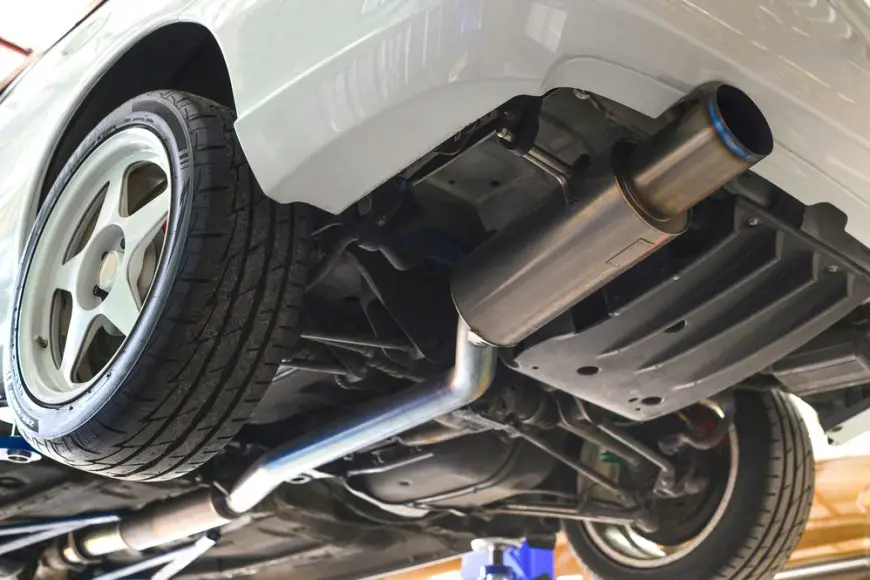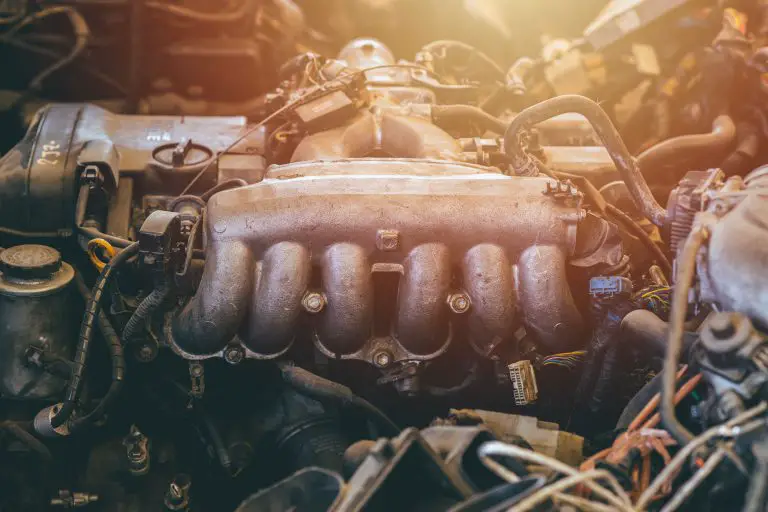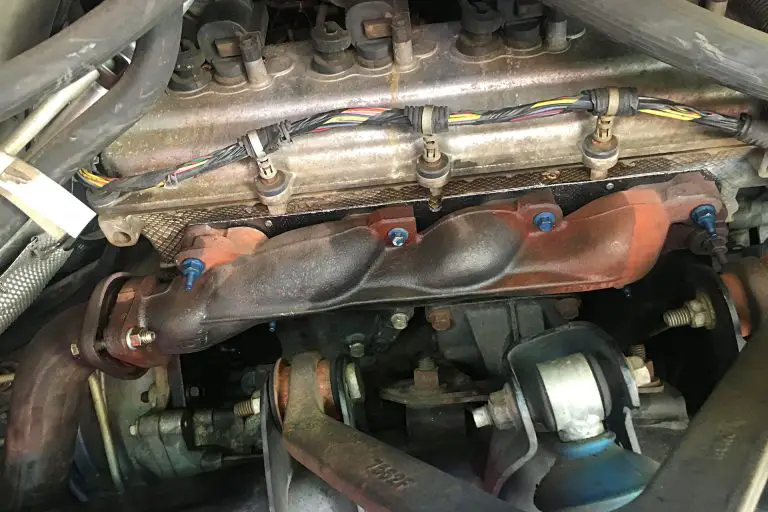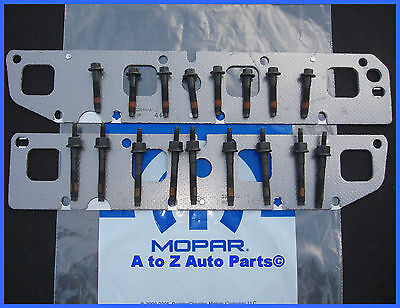How Does Exhaust Affect Performance? Boost Your Vehicle’s Power!
Exhaust affects performance by allowing the engine to “breathe” better, resulting in increased power and horsepower. A properly functioning exhaust system is crucial for optimal vehicle performance, as a faulty or damaged system can limit speed, power, fuel efficiency, and even cause serious mechanical issues if left untreated.
Upgrading the exhaust system improves airflow, allowing used fuel and air to exit the combustion chambers faster, freeing up more power and increasing engine horsepower. An aftermarket exhaust header can also boost a car’s horsepower and torque by moving air faster and more efficiently.
Overall, a properly functioning and upgraded exhaust system plays a significant role in enhancing a vehicle’s performance.
The Role Of The Exhaust System
The exhaust system plays a crucial role in a vehicle’s performance. It is not just a collection of pipes that expel engine fumes, but it also impacts engine power and fuel efficiency. A damaged or faulty exhaust system can limit speed and power, reducing overall performance.
By updating the exhaust system, the engine is able to “breathe” better, allowing fuel and air to exit the combustion chambers more efficiently. This results in increased horsepower and improved performance. In fact, investing in a new exhaust header can further enhance a car’s horsepower and torque by optimizing air movement.
So, if you’re looking to make your car go faster, consider upgrading your exhaust system for better performance.
Factors That Influence Performance
Factors That Influence Performance Back pressure: Understanding its impact on performance. Exhaust leaks: How they affect engine power. Exhaust size: Finding the optimal diameter. Exhaust length: The impact on performance. Restricted vs free-flowing mufflers: Which is better? The role of bends in the exhaust system.
The exhaust system plays a crucial role in the performance of an engine. A faulty or damaged exhaust system can limit the speed and power of a vehicle. Back pressure, caused by restrictions in the exhaust system, can have a significant impact on performance.
Exhaust leaks can also affect engine power by allowing air to escape before it can be used effectively. Choosing the right size of the exhaust diameter is important for optimizing performance. The length of the exhaust system can also affect how efficiently the engine performs.
Additionally, the type of muffler used, whether it’s restricted or free-flowing, can impact performance. Bends in the exhaust system can create resistance and affect the flow of exhaust gases. Understanding these factors and ensuring a well-maintained exhaust system can help enhance the performance of your vehicle.
Improving Performance With Exhaust Modifications
Improving performance with exhaust modifications involves various strategies. Increasing the diameter of the exhaust system is one such method that enhances engine power. By allowing a freer flow of exhaust gases, more power is generated. Installing a free-flowing muffler also offers benefits, such as reduced back pressure and improved engine efficiency.
However, it’s important to consider noise regulations and personal preferences when choosing a muffler. Another performance-enhancing modification is removing bends from the exhaust system. This helps to reduce restrictions and boost power. The controversy surrounding loud pipes and their effect on power is also worth mentioning.
While some believe that loud pipes can increase power, others argue that the difference is negligible. Lastly, it’s important to consider the longevity of aftermarket exhaust systems. Choosing a quality system and maintaining it properly can ensure a longer lifespan for your exhaust modifications.
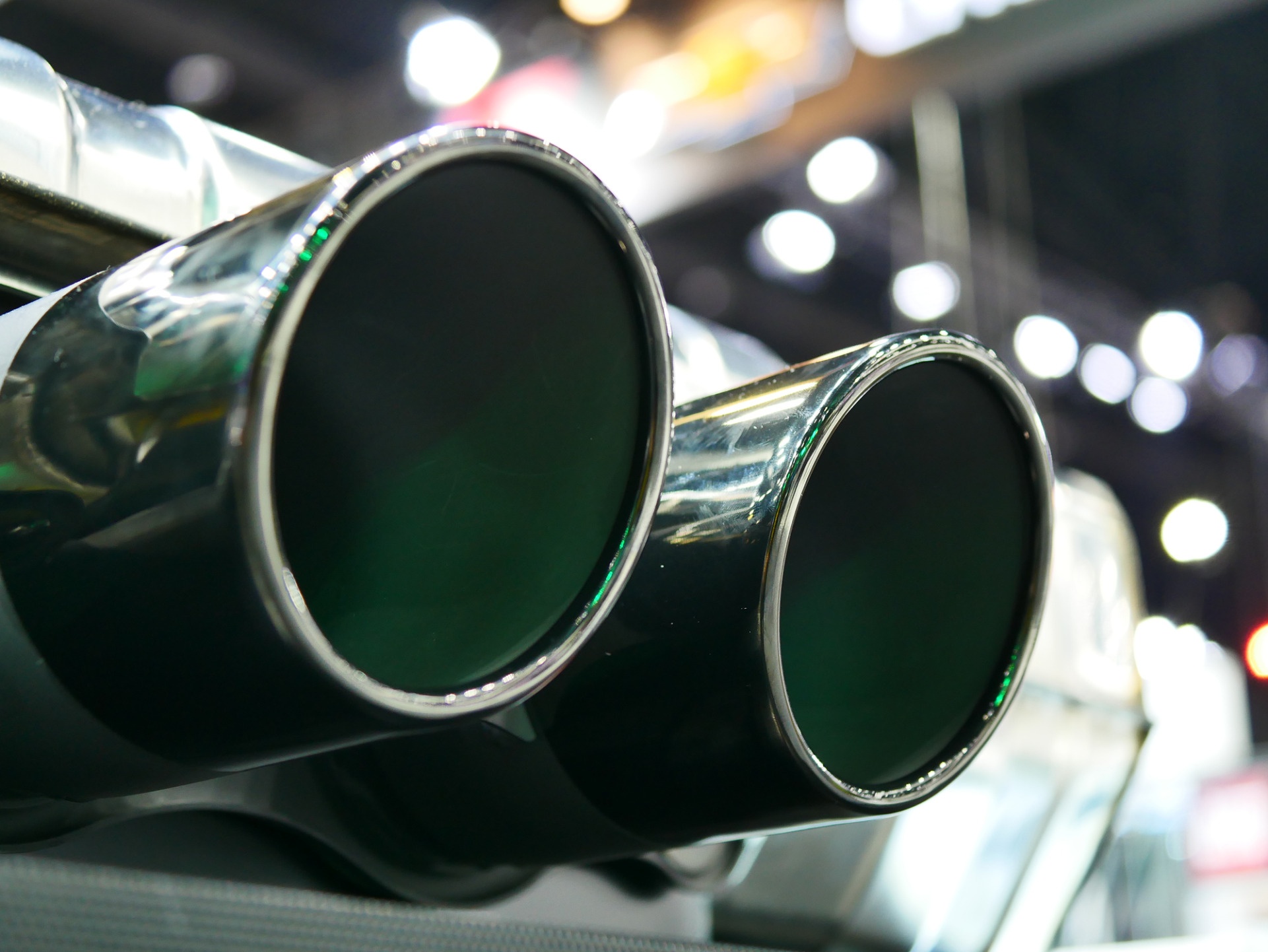
Credit: dkuperformance.co.uk
Turbo Back Exhaust Systems
The advantages of turbo back exhaust systems are worth investigating to understand their impact on performance. One key benefit is the concept of scavenging, which involves the removal of exhaust gases from the engine. By allowing a smoother flow of exhaust gases, turbo back systems can improve engine efficiency and increase horsepower.
Another advantage is the removal of bends in the exhaust system, which reduces back pressure and allows for better airflow. Additionally, turbo back systems often feature a free-flowing muffler, which further enhances exhaust flow and can provide a deeper, more aggressive sound.
Overall, investing in a quality turbo back exhaust system can have a positive impact on your vehicle’s performance, providing increased power and improved efficiency.
Do Performance Exhausts Increase Horsepower?
A high-performance exhaust can have a significant impact on a vehicle’s horsepower and overall performance. By increasing the diameter of the exhaust pipes and using a free-flowing muffler, the exhaust system allows for better air flow, resulting in increased power.
Removing bends in the exhaust system reduces back pressure, further enhancing performance. Proper installation of aftermarket exhaust systems ensures a secure fit and optimal function. Exhaust hangers play a crucial role in supporting the exhaust system and preventing excessive movement.
Additionally, it is essential to check for any leaks in the exhaust system, as they can affect performance and lead to a loss of power. Understanding the goals of installing a performance exhaust and following a step-by-step guide to removing stock mufflers will allow you to optimize your vehicle’s performance.
The Truth About Aftermarket Exhausts
The catalytic converter plays a crucial role in the performance of an aftermarket exhaust system. It helps reduce harmful emissions by converting toxic gases into less harmful ones. Another factor to consider is the impact of a servo controlled valve, which allows for better control over exhaust flow and enhances performance.
Weight savings are also significant when it comes to aftermarket exhaust systems. By using lighter materials, such as stainless steel, the overall weight of the exhaust system is reduced, resulting in improved acceleration and handling. When it comes to the components of an exhaust system, it includes the muffler, catalytic converter, exhaust manifold, oxygen sensor, and resonator, all of which work together to enhance performance.
High-performance exhaust options, like the Rough Country Performance or MagnaFlow Overland Series Cat, offer even more power and improved sound. Whether it’s for added horsepower or a deep rumble, upgrading your exhaust can make a noticeable difference in your vehicle’s performance.
Does Exhaust Affect Engine Performance?
A functional exhaust system plays a crucial role in the performance of your engine. It goes beyond expelling fumes; it affects speed, power, and fuel efficiency. A damaged exhaust system can restrict your vehicle’s ability to reach higher speeds, reduce overall power output, and decrease fuel efficiency.
Additionally, neglecting a damaged exhaust system can lead to more serious mechanical issues if left untreated. By updating and maintaining your exhaust system, you can improve the engine’s performance. A well-functioning exhaust system allows for better airflow, resulting in increased horsepower.
Investing in a new exhaust header is also a great way to boost your car’s performance by optimizing air movement. Remember, a healthy exhaust system is essential for maximizing your engine’s potential.
Frequently Asked Questions Of How Does Exhaust Affect Performance
Does Exhaust Affect Engine Performance?
Yes, the exhaust system affects engine performance as it plays a crucial role in expelling engine fumes and improving the engine’s “breathing” ability, leading to increased horsepower and improved fuel efficiency. A faulty or damaged exhaust system can limit speed and power and may even result in serious mechanical issues if not addressed.
How Much Does Exhaust Affect Performance?
Upgrading the exhaust system improves engine performance by increasing horsepower and allowing for better air flow.
Does An Exhaust Make A Car Faster?
An exhaust system can improve a car’s performance by increasing horsepower and torque.
How Much Hp Does Exhaust Add?
Upgrading the exhaust system can increase horsepower by improving air flow and freeing up power in the engine.
Conclusion
The exhaust system plays a crucial role in the performance of your vehicle. It is not just a mere collection of pipes used to expel engine fumes; rather, it significantly affects the overall power and efficiency of your engine. A damaged or faulty exhaust system can lead to limited speed and power, decreased fuel efficiency, and even serious mechanical issues if not addressed promptly.
By upgrading your exhaust system, you allow the engine to “breathe” better. This means that used-up fuel and air can exit the combustion chambers more efficiently, resulting in increased horsepower. A tight and functional exhaust system frees up power, optimizing the engine’s performance.
Investing in a new exhaust header can further enhance your car’s horsepower and torque. Whether you choose long tube or shorty headers, a performance exhaust header helps move air faster and more efficiently, resulting in improved overall performance. Maintaining and upgrading your exhaust system is essential for maximizing your vehicle’s performance.
A well-functioning exhaust system allows your engine to operate at its full potential, delivering increased power, improved fuel efficiency, and a better driving experience.

